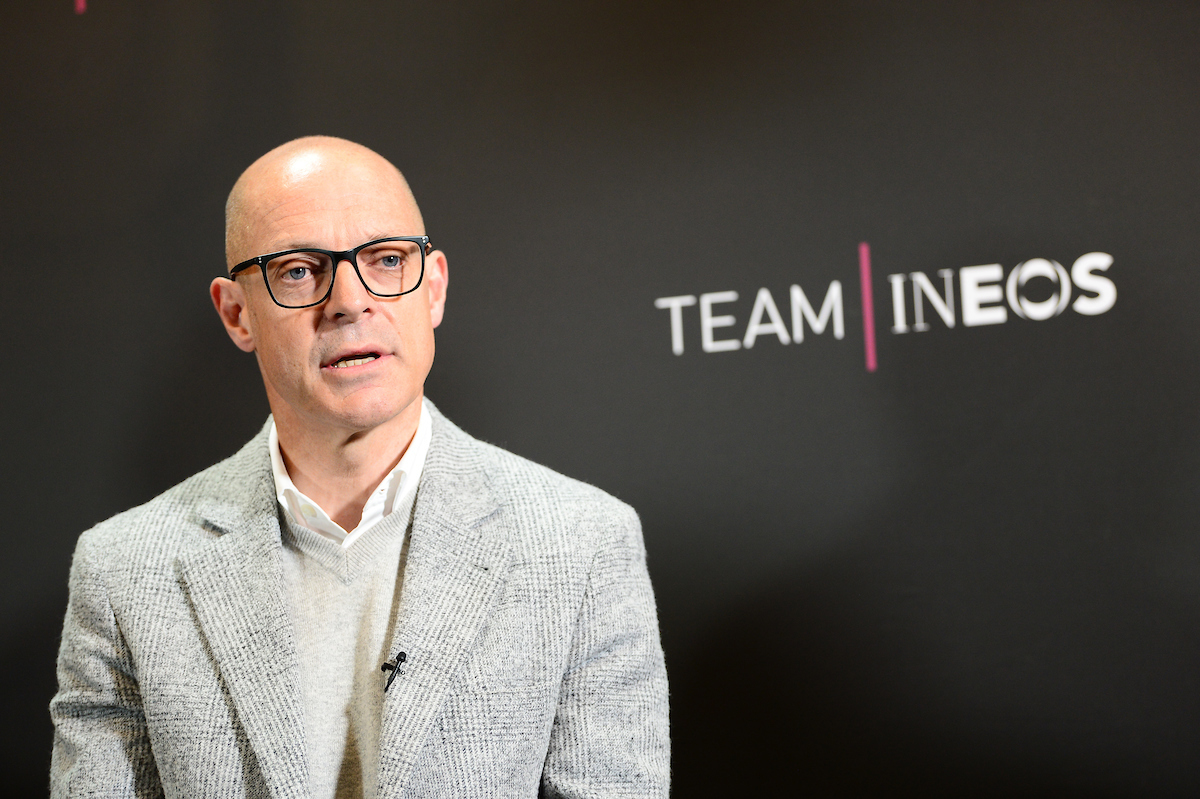Brailsford applauds UCI on keeping Cobo's Vuelta a Espana case confidential during proceedings
'We've been at the wrong end of confidentiality issues' says Team Ineos boss

Dave Brailsford was cautious not to give away too much at the start of stage 6 of the Critérium du Dauphiné when asked about the shocking news that Juan Jose Cobo would be stripped of his 2011 Vuelta a España title pending an appeal.
The UCI announced on Thursday that its Anti-Doping Tribunal found Cobo "guilty of an anti-doping rule violation (Use of a prohibited substance) based on abnormalities from 2009 and 2011 detected in his Biological Passport and imposed a three-year period of ineligibility on the rider."
Finishing second to Cobo was none other than Chris Froome, who burst onto the GC racing scene at the same race with second place overall. Bradley Wiggins finished third. Froome is currently in hospital as he recovers from a serious crash at the Dauphine that left him with several fractures and internal injuries.
Speaking to ITV and Cyclingnews this morning, Team Ineos Principal Brailsford said he was also surprised by the news.
"The first I heard about it was yesterday, towards the end of the day when someone phoned up and said that the UCI were about to make an announcement. That's the first I knew about it," he said.
The Cobo investigation dates back to 2015 after the rider retired from professional cycling at the end of 2014. Passport cases have been retrospective in the past and have taken time to put together as they're not as simple as positive or negative drug tests. They rely on long-term data and samples taken over time. When asked about the length of time it took for the UCI to make the announcement, Brailsford said "it will all come out in the wash".
"I'm sure the UCI will explain to us all what's gone on," he said. "I guess that there are two ways of looking at it. You can immediately question it and be suspicious of it all, and the other is to say,'Well done'. The whole idea of what they do means you have to trust in what they do and that they work in confidentiality.
Get The Leadout Newsletter
The latest race content, interviews, features, reviews and expert buying guides, direct to your inbox!
"I think the whole issue around confidentiality, it's pretty central to the whole anti-doping process. At times it probably feels frustrating for people when you're not quite sure what's going on and etc., and people like to ask questions, but on the other hand, if it brings the right results and it's done in the right way then you have to trust in what the authorities are doing, which we do. I think you've then got to back them in that."
Brailsford then brought up the 2017 example of when Froome's salbutamol case was leaked to the press. In that case, Froome was later cleared.
"We've been at the wrong end of confidentiality issues when things were meant to be kept confidential and they weren't kept confidential," Brailsford said. "So, in that case, I personally trust the UCI to do their work and to tell us when they make a decision."
In recent times, the UCI Biological Passport has faced criticism for not catching high-profile names and because of the reported holes in the system due to micro-dosing. Although no one would argue that the system is a silver bullet to cure the sport of doping, Brailsford did state that it was still a tool for good.
Team Ineos have been involved with passport stories in the past. Jonathan Tiernan-Locke was given a two-year ban while at Team Sky due to anomalies in his passport before he joined the team. In 2016, the UCI opened a case against then-Team Sky rider Sergio Henao, but the case was later dropped and the Colombian returned to competition without charges.
"I've got no information about the case, so I can't make any conclusions about the case in any way shape or form. But does the biological passport work?It's part of the armory and tools that the anti-doping authorities have. It contributes. It's a tool. It's not black and white, that's for sure, but I think it's better that it's there than if it isn't. As we understand and evolve a bit more, the more it can play a role. If anything, the anti-doping process should be embraced, really. I guess normally there would be an appeal, but let's wait and see."
Daniel Benson was the Editor in Chief at Cyclingnews.com between 2008 and 2022. Based in the UK, he joined the Cyclingnews team in 2008 as the site's first UK-based Managing Editor. In that time, he reported on over a dozen editions of the Tour de France, several World Championships, the Tour Down Under, Spring Classics, and the London 2012 Olympic Games. With the help of the excellent editorial team, he ran the coverage on Cyclingnews and has interviewed leading figures in the sport including UCI Presidents and Tour de France winners.
